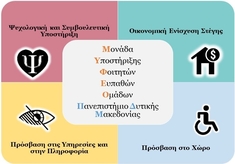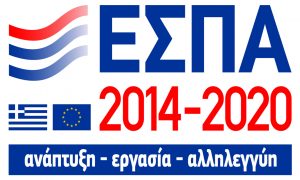Students Practicum
Students’ Practicum
The students’ practice in primary school is always combined with Teaching Methodology. The program of Teaching Methodology and Student Practicum (DI.ME.PA.) mainly aims at students’ basic teaching training (theoretical and practical). It consists of three separate phases with related objectives, contents and way of organization. It starts in the third semester and ends in the eighth semester.
The first phase (Phase A) aims at introducing the students to the theory and practice of school and teaching, with relevant theoretical lessons at the Department and systematic observation at primary school.
The second phase (Phase B) aims at the theoretical training of the student in teaching of primary school subjects and students’ development of planning, conducting and evaluating skills regarding teaching these courses.
The third phase (Phase C) aims at introducing the student to the normal, daily pace of work and life at school. Students are responsible for the pedagogical and teaching work for one week in a 6-class school and another week in a school operating with fewer classes.
The individual courses of Teaching Methodology and Practicum for the courses of Greek Language, Mathematics, Physics and History are included in the category of Compulsory courses, while among the five courses of Environmental Studies, Religious Education, Arts, Music and Physical Education student must choose two. The other three can be selected as Elective courses.
All phases of the students’ practicum function as laboratory. In this sense:
- a) Students are not allowed to participate in the next phase without having completed the previous one.
- b) They are not allowed to participate in the 2nd or 3rd Phase (nor to choose Required Elective courses) without having successfully met the prerequisite courses that correspond to it (see the contents of the courses).
- c) Exam period is not repeated in September.
- d) Students who do not fulfill their obligations are required to repeat the specific phase of the student practicum during the semester in which it is offered. More information about the student practice and how it is conducted can be found in its detailed presentation on the following pages.









